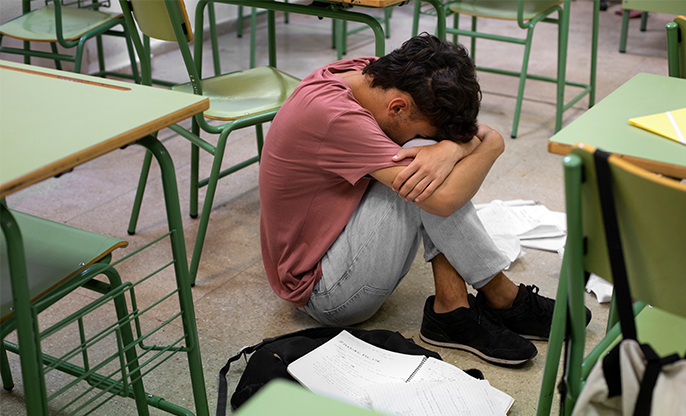
Bullying at school
Bullying has become a concerning problem for elementary, middle, and high school kids. It's not just words or name-calling that can cause distress. Physical and mental bullying can have lasting effects on young minds and hearts.
It can cause significant trauma and feelings of anxiety, depression, and isolation for victims. Bullying can also profoundly affect the bully, who may experience trouble with relationships, manage anger, and even face legal consequences.
As a parent, you must be aware of the signs that your child is being bullied or bullying others. Some signs include:
changes in behavior
difficulty sleeping
lack of concentration
becoming withdrawn
difficulty socializing
feeling angry or sad
show physical symptoms such as bruises or injuries
May use bullying behavior against you or other family members.
It would be best to remember the effects of bullying when you talk to your child about their experience with it.
Tips on How to Best Talk to Your Child About Bullying
Listen with empathy and understanding. Let your child know it's okay for them to open up and tell you how they're feeling and that you're here to listen to them without judgment.
Ask questions and avoid getting angry. Ask what happened and what the inciting incident was instead of responding angrily, as this might make them reluctant to speak up.
Provide comfort and reassurance that they are safe. Reassure them of their safety, secure in the knowledge that you're there for them no matter what happens or what challenges come their way.
Take a realistic approach to tackling the problem. Discuss with your child the best steps to take when dealing with the bully. Emphasize that violence is never an appropriate response, no matter how frustrated or angry a student may feel at any given time.
Offer support and encourage resilience. Talk to your child about not letting this situation define their entire school experience. Remind them of all their accomplishments so far, so they can draw strength from them and feel empowered even in challenging times like these.
Talking to Your Child's Teachers
It's important to speak with their teachers and let them know what's happening, and then work together to create a plan to protect your child.
Be direct and honest about what's happening.
Ask for advice on how best to move forward in helping your child.
Ensure your child's teacher understands the importance of fostering a safe environment where everyone feels comfortable and secure.
By working with your child's teachers, you can create a supportive environment where bullying isn't tolerated - one that encourages learning, growth, and development!
Coping Strategies for Your Child
Helping your child cope with bullying is a delicate process, and you must remain mindful of how kids are feeling.
Talk it out
Let them use their words to express how the situation makes them feel – even if it's hard to hear sometimes. Ask questions, be patient, and show that you understand their feelings.
Stay connected with other adults.
Reach out to teachers, counselors, administrators, or any other trusted adult at your child's school who might offer extra support.
Help build confidence
Help your child believe in themselves, stay organized, practice healthy relationships and build meaningful connections with people outside of school. This will help provide a strong foundation for their self-confidence and self-esteem.
Acknowledge their fears
Let your child know it's okay to acknowledge any fear or doubts about being bullied or standing up for themselves. Process and work on them together.
The best thing you can do is to provide a safe, secure environment for them to talk and listen and the tools they need to stand up to bullies and maintain a positive self-image.



